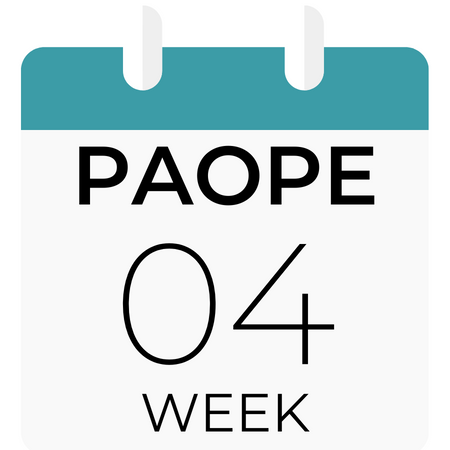Jesus Raises the Widow’s Son
“Young man, I say to you, arise” – (Luke 7:14)
This Sunday, the 4th Sunday of the blessed month of Paope, the Church Gospel reading is from Luke 7: 11-17. This passage tells the moving account of Jesus raising the son of the widow of Nain.
As our Lord approached the gates of the town, He encountered a funeral procession, the only son of a widowed mother being carried out for burial. The grief of the widowed mother moved Him with compassion and told her “Do not weep” (Luke 7:13). Jesus then went and touched the open coffin and said “Young man, I say to you, arise” (Luke 7:14). When He touched the coffin, His power immediately dispelled the presence of death. The dead man sat up and began to speak and all those who were witnessing this glorified God. Immediately, death surrendered to His command, and the young man sat up and began to speak, and all who witnessed glorified God, saying, “A great prophet has arisen among us,” and “God has visited His people.” (Luke 7:14)
Unlike previous miracles, in which the Lord was invited or called upon, such as the healing of Jairus’s daughter or the servant of the centurion, here, no one summoned Christ. He initiated the miracle purely out of divine compassion. His meeting with the funeral procession was no coincidence; rather, it was a providential encounter revealing the authority of the Son of God, whose mere presence transforms despair into life.
This makes us question why His Word was not enough to raise the dead man. St. Cyril of Alexandria reminds us that these actions were intended for us to understand that the Holy Body of Christ is essential for the salvation of man. “What is more powerful than the Word of God? Why then did He not affect the miracle by a word only, but also touched the bier? It was, my beloved, that thou mightiest learn that the holy body of Christ is effectual for the salvation of man. For the flesh of the Almighty Word is the body of life and was clothed with His might. The flesh of Christ also has to power of giving life and annihilates the influence of death and corruption because it is the flesh of the Word, who gives life to all.” SERMON XXXVI-135
Through this touch, the Lord reveals that His very Body is life-giving, a mystery continued and made accessible to us in the Holy Eucharist. As St. Gregory of Nazianzus writes, the Eucharist “is the ultimate uniting agent; it joins us to Christ, the God-made man, and through Him restores the harmony between body and soul, leading not to death but to eternal life. It also binds all who partake into one mystical Body of Christ.”
Additionally, in Liturgy, during the Confession, the Priest says that Communion is “given for us for salvation, remission of sins, and eternal life to those who partake of Him.”
Let us, therefore, approach the Holy Mysteries with reverence and faith, that we may experience in our lives the same victorious power that conquered death in Nain. Through the Body and Blood of Christ, may our souls be raised from corruption into everlasting life.
Sources:
- Bible, English Standard Version
- Catena Bible, Church Father Commentaries
- Commentaries on the Gospel of St. Matthew by Father Tadros Malaty
- The Catholic Exchange
- St. Cyril of Alexandria, Commentary on Luke, Sermon XXXVI-135
- St. Gregory of Nazianzus, Orations

